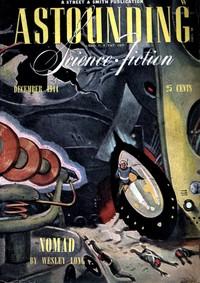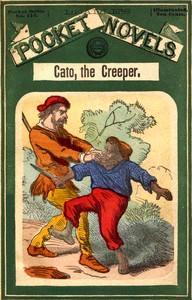|
|
Read this ebook for free! No credit card needed, absolutely nothing to pay.Words: 20744 in 12 pages
This is an ebook sharing website. You can read the uploaded ebooks for free here. No credit cards needed, nothing to pay. If you want to own a digital copy of the ebook, or want to read offline with your favorite ebook-reader, then you can choose to buy and download the ebook.

: Sekaherelmiä: Eteläpohjalaisia murrejuttuja by Ikola Jaakko - Short stories Finnish; Finnish fiction 20th century; Dialect literature Finnish@FreeBooksThu 08 Jun, 2023 CHAP. PAGE THE WAR AND THE CHURCHES THE RESPONSIBILITY OF THE CHURCHES The first question which the unprejudiced inquirer will seek to answer is: How far were the Churches able to prevent, yet remiss in using their influence to prevent, the present war? There is, unhappily, in these matters no such thing as an entirely unprejudiced inquirer. Our preconceived ideas act like magnets on the material of evidence which is submitted to us, instinctively selecting what bears in their favour and declining to receive what they cannot utilise. Nowhere is this more conspicuous than in the field of religious inquiry, nor is it confined to either believers or unbelievers. There has been too much mutual abuse, and too little attention to the fact that the mind no less than the mouth has its palate, its impulsive selections and rejections. One can meet the difficulty only by a patient and full examination of the pleas of both parties to a controversy. And the first plea which it is material to examine is that, since it is claimed that all the nations engaged in the war are Christian nations, one may accuse them collectively of moral failure. From the earliest days of the Christian religion it was the boast of those who accepted it that it abolished all distinctions of caste and race. In the little community which gathered round the cross there was neither bond nor free, neither Greek nor Roman. This cosmopolitanism was, in fact, a natural feature of religious movements at the time, and was due not so much to their intrinsic development as to the political circumstances of the world in which they spread. All round the eastern and northern shores of the Mediterranean a great variety of races mingled in every port and every commercial town, and it was the policy of the powerful Empire which extended its sway over them all to overrule their national antagonisms. When, in the earlier period, Jew and Greek and Egyptian had maintained their separate nationalities, hostility to other races had been a very natural social quality, an inevitable part of the spirit of self-preservation in a race. When the great Empires had conquered the smaller nationalities or the decaying older Empires, this mutual hostility was moderated, and, as the vast movements of population which marked the end of the old and the beginning of the new era filled the Mediterranean cities with extraordinarily mixed crowds, mutual friendship became the more fitting and more useful social virtue. A good deal of the old narrow patriotism had been due to the fact that each nation had its own god. In the new Roman world this theological exclusivism broke down, and the priests of a particular god, scattered like their followers among the cities of the eastern world, began to seek a cosmopolitan rather than a nationalist following. In the temple of each of the leading gods of the time--Jahveh, Serapis, Mithra, and so on--people of all races and classes were received on a footing of equality. The doctrine of the brotherhood of man spread all over that cosmopolitan world. When the old world, to the south and east of the Mediterranean, was blotted out of history, and Europe in turn became a group of conflicting nationalities, racial hatred was revived and in its political and social aspects the doctrine of the brotherhood of man was virtually forgotten. But the Christian Church had embodied that doctrine in its sacred writing, and was bound to maintain it. In its ambition of a universal dominion it was the direct successor of the Roman Empire. All the races of Europe were to meet as brothers under the one God of the new world and under the direction of his representatives on earth. It was this change in the features of the world which gave a certain air of insincerity to the Christian gospel. In the older days there had been political unity with a great diversity of religions; now there was religious unity spread over a great diversity of antagonistic political bodies. Men were brothers from the religious point of view and, only too frequently, deadly enemies from the political point of view. The discord was made worse by the feudal system which was adopted. Even within the same race there was no brotherhood. In effect the clergy as a body did not insist that the noble was a brother of the serf, and did not exact fraternal treatment of the serf. Thus the phrase, "the brotherhood of man," which had been a most prominent and active principle of early Christianity, became little more than a useless theological thesis. The solution of the difficulty would, of course, have been for the clergy, as the supreme representatives of the doctrine of brotherhood, to apply that doctrine boldly to every part of man's conduct; to pronounce that all violence and bloodshed were immoral, and to devise a humane means of settling international quarrels. I will consider in the next chapter why the Christian leaders failed even to attempt this great reform. For the moment it is enough to observe that the conditions of modern times favoured a fresh assertion of the doctrine of brotherhood. Great as the power of sincere moral idealism has always been, the historian must recognise that economic changes have had a most important influence upon the development or acceptance of moral ideas. Just as in earlier ages the development of forms of life was conditioned by changes in their material surroundings, so man's moral development has been profoundly influenced by industrial, commercial, and political changes. The destruction of feudalism and the development of the modern worker were notoriously not due to religious influence, yet they had an important relation to religious doctrines. Once the new spirit had asserted its right, the clergy recollected that all men are brothers from the social as well as the religious point of view. Many of them, and even some social writers of Christian views, maintain that the new social order is itself based on or inspired by the religious doctrine of brotherhood. This speculation is entirely opposed to the historical facts, but it will easily be realised that when the workers had, in their own interest, asserted afresh the doctrine of human brotherhood, the Churches had a new occasion to preach it. How timid and tentative that preaching was, and even is, we have not to consider here. On the whole the brotherhood of men was re-affirmed by the Churches both in the social and religious sense. In examining the charge that, for some reason or other, they neglected their mission at a crisis of supreme importance, we must recall that few of us believed that a great war would occur until we actually heard the declaration. No indictment of the clergy is valid which presupposes that they are more sagacious or far-seeing than the rest of us. Yet, however much we may have doubted the actual occurrence of war, we have known for years, and have quite complacently commented upon, the danger that half of Europe would sooner or later be involved in the horrors of the greatest war in history. Now it is notorious that the Christian Churches have done little or nothing, in proportion to their mighty resources and influence, to avert this danger. No collective action has been taken, and relatively few individuals have used their influence to moderate or obviate the danger. The supreme head of the most powerfully organised and most cosmopolitan religious body in the world, an institution which has its thousands of ministers among each of the antagonistic peoples--I mean the Church of Rome--gave his attention to minute questions of doctrine and administration, and bemoaned repeatedly the evil spirit of our age, but issued not one single syllable of precise and useful direction to the various national regiments of his clergy in connection with this terrible impending danger. The heads or Councils of the various Protestant bodies were equally remiss. Here and there individual clergymen joined associations, founded by laymen, which endeavoured to maintain peace and to secure arbitration upon quarrels, and one Sunday in the year was set aside by the pulpits for the vague gospel of peace. But in almost all cases these movements were purely secular in origin, and the few movements of a religious nature have been obviously founded only to keep the idealism linked with a particular Church, have had no great influence, and have been too vague in their principles to have had any effect upon the growing chances of a European war. There is no doubt that the Churches have remained almost dumb while Europe was preparing for its Armageddon. I speak of the clergy, but in our time the responsibility cannot be confined to these. Even in the Church of England the laity have now a considerable influence, and in the other Protestant bodies they have even more power in the control of policy. No doubt the duty of initiative and of work in such matters lies mainly with the more leisured and more official interpreters of the Christian spirit, yet it would be absurd to restrict the criticism to them. The various Christian bodies, as a whole, have confronted a very grave and imminent danger with remarkable indifference, although that danger could become an actual infliction only by seriously immoral conduct on the part of some nation. They saw, as we all saw, the vast armies preparing for the fray, the diplomatists betraying an increasing concern about the relations between their respective nations, the press embittering those relations, and a pernicious and provocative literature inflaming public opinion. We all saw these things, and knew that a war of appalling magnitude would follow the first infringement of peace. Yet I think it will hardly be controverted that the Churches made no serious effort to avert that calamity from Europe. They were deeply concerned about unbelief, about personal purity, about the cleanness of plays and books and pictures, even about questions of social reform which a rebellious democracy forced on them; but they took no initiative and performed no important service in connection with this terrible danger. That is the indictment which many bring against Christianity, and we have now to consider the general defence. I will examine later a number of religious pronouncements about the war, and will discuss here only a few general pleas which are put forward as a defence against the general indictment. It is, in the first place, urged that the moral and humanitarian teaching which the Christian Churches never ceased to put before the world condemned in advance every departure from the paths of justice and charity; that it was not the fault of Christianity if men refused to listen to or carry into practice that teaching. But at no period in the history of morals has it sufficed to lay down general principles. Everybody perceives to-day, not only that slavery was in itself a crime, but that it was essentially opposed to the Christian morality. Yet, as no Christian teacher for many centuries ventured to apply the principle by expressly denouncing slavery, the institution was taken over from Paganism by Christian Europe and lasted centuries after the fall of the Roman Empire. The Church itself had vast numbers of slaves, and later of serfs, on its immense estates. Leo the Great disdainfully enacted that the priesthood must not be stained by admitting so "vile" a class to its ranks, and Gregory the Great had myriads of slaves on the Papal "patrimonies." So it was with the demand for social reform which characterised the nineteenth century. To-day Christians claim that their principles sanctioned and gave weight to those early demands of reform, yet their principles had been vainly repeated in Europe for fifteen hundred years, and, when the people themselves at last formulated their demands in the early part of the nineteenth century, it is notorious that the clergy opposed them. The teaching of abstract moral principles is of no avail. Man is essentially a casuist. Leave to him the application of your principles, and he will adapt almost any scheme of conduct to them. The moralist who does not boldly and explicitly point the application of his principles is either too ignorant of human nature to discharge his duty with effect or is a coward. The plain fact is that the preaching of justice and peace throughout Europe has been steadily accompanied by an increase in armaments and in international friction. It had no moral influence on the situation. Free books android app tbrJar TBR JAR Read Free books online gutenberg More posts by @FreeBooks
: Nomad by Smith George O George Oliver Orban Paul Illustrator - Science fiction@FreeBooksThu 08 Jun, 2023

: The 151st Field Artillery Brigade by Russell Richard M - World War 1914-1918 Regimental histories United States; United States. Army. Field Artillery Brigade 151st@FreeBooksThu 08 Jun, 2023
|
Terms of Use Stock Market News! © gutenberg.org.in2025 All Rights reserved.






